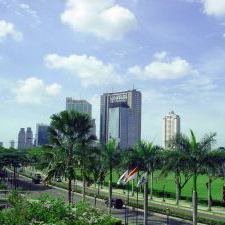Travel Tips
Jakarta Hotels Reopen Amid Security Concerns in Indonesia
 Less than two weeks after they were struck by suicide bombers posing as guests, the Ritz Carlton and JW Marriott hotels in Jakarta have re-opened for business despite a tense security environment in which other hotels have been threatened.
Less than two weeks after they were struck by suicide bombers posing as guests, the Ritz Carlton and JW Marriott hotels in Jakarta have re-opened for business despite a tense security environment in which other hotels have been threatened.
The two hotels were attacked on July 17 by terrorists who are believed to be associated with a violent Islamic extremist group. The men detonated their devices in the restaurant areas of the adjacent hotels at approximately 7:45 am.
The nearly simultaneous bombings left nine people dead and injured 53 others, including both locals and foreigners.
Both hotels sustained serious damage to their ground floor areas. After extensive repairs and the implementation of new security procedures, the two properties reopened today at 10 a.m. and both already have guests booked to stay the night.
A spokesman for the hotels (which are both managed by Marriott) would not reveal exactly how security had been tightened, but local news reports said that cars and individuals were being individually screened by dozens of security personnel and bomb-sniffing dogs.
Read Peter’s take on safety in Indonesia with The Travel Detective on the Jakarta Hotel Bombings.
Hotel representatives also would not say whether or not any Western tourists or business people had booked rooms at either hotel, but locals were seen dining in the hotels’ restaurants today. Both hotels are popular with foreigners who come to do business in the Indonesian capital.
 Coincidentally, the reopening is taking place on the same day that someone has finally come forward to claim responsibility for the blast. A blog entry appeared on the Internet this morning in which a group calling itself al-Qaeda in Indonesia took credit for the bombings.
Coincidentally, the reopening is taking place on the same day that someone has finally come forward to claim responsibility for the blast. A blog entry appeared on the Internet this morning in which a group calling itself al-Qaeda in Indonesia took credit for the bombings.
Authorities are investigating the legitimacy of the statement, which said that the targets were American businessmen and the British soccer team Manchester United. The team was scheduled to stay at the Ritz later in the week, but ended up canceling their trip in the wake of the bombings.
Indonesian police believe the attacks bear the hallmarks of Noordin Top, a Malaysian-born fugitive who leads the Jemaat Islamiya terror group. Noordin is allegedly behind several attacks on Western targets that occurred between 2003 and 2005 in Indonesia.
Read the news report on Two Jakarta Hotel Bombings Rattle Indonesia.
Several other Jakarta buildings have been subjected to bomb threats over the last few days, including the Kempinksi hotel, a local shopping center and office buildings. So far they have all turned out to be hoaxes, but authorities are taking no chances and are thoroughly investigating each one.
 Security has also been heightened around the city to reassure tourists and locals alike that they have nothing to fear. The Indonesian capital is a regional hub for business and tourism, and officials are keen to portray the city as a safe place to visit.
Security has also been heightened around the city to reassure tourists and locals alike that they have nothing to fear. The Indonesian capital is a regional hub for business and tourism, and officials are keen to portray the city as a safe place to visit.
In fact, to encourage more visitors, the government plans to spent approximately $9.4 million this year to help the tourism industry, which could use the help right now.
Although local hoteliers say the bombing seems to have scared away a small percentage of visitors, it did not have as severe an impact on the industry as the Bali nightclub bombing of 2002, when tourist arrivals declined by up to 70 percent in some places.
So far, no foreign countries have issued travel warnings advising their citizens not to travel to Indonesia.
By Karen Elowitt for PeterGreenberg.com.
Related links: USA Today, Bloomberg, Washington Post, Wall Street Journal, Jakarta Post, CIT magazine, Reuters, Bernama.com
Read about one of Indonesia’s most special places in Grateful Traveler: Mount Bromo, Indonesia.
Or learn more about Indonesian cuisine with Global Gourmet: Food Gifts From Around the World.












